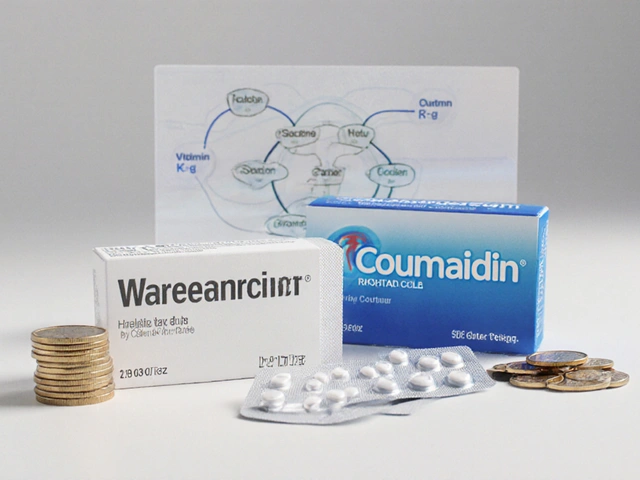Heart Disease: What to watch for with meds and supplements
Some everyday drugs and supplements can change how your heart works. That matters if you have high blood pressure, a rhythm problem, previous heart attack, or are on multiple meds. This page points out the practical risks, simple safety steps, and related reads on MedsEngage so you can protect your heart without guessing.
Medications that often affect the heart
Antibiotics like azithromycin (Zithromax) and clarithromycin (Biaxin) can lengthen the QT interval in some people. If you have a known arrhythmia or take other QT‑affecting drugs, tell your prescriber before starting these antibiotics. Erectile dysfunction drugs (like Levitra/vardenafil) are safe for many, but never mix them with nitrates—this combo can dangerously drop your blood pressure.
Other meds that matter: certain antidepressants and some antipsychotics can affect heart rhythm or blood pressure. Diabetes drugs that help weight loss, such as semaglutide, can improve overall cardiometabolic risk, but discuss dosing and side effects with your clinician. If you take multiple prescriptions, ask for a medication review to check for dangerous interactions.
Supplements, lifestyle, and simple checks
Omega‑3 supplements can help heart health for some people. Newer options like Calanus oil contain unique omega‑3 profiles—useful to know, but don’t assume every supplement is safe. Tell your clinician about every supplement and herb you use; some change blood thinning or cardiac drug levels.
Practical daily steps: control blood pressure and cholesterol, aim for 150 minutes of moderate exercise per week, avoid smoking, and keep weight and blood sugar in check. Small changes add up. If you start a new drug and notice palpitations, dizziness, fainting, chest pain, or sudden breathlessness, stop and seek care.
Want a quick safety routine? 1) Keep an updated med list (include OTCs and supplements). 2) Ask your pharmacist to run an interaction check. 3) Flag any personal heart conditions before new treatments. 4) Get follow‑up tests if your doctor recommends them (like ECGs when on QT‑risk drugs).
Below are related posts on MedsEngage that dig into specific meds and heart‑related issues. They’re written for regular people—clear, practical, and short.
- Calanus Oil: Unlock Its Power for Truly Better Health — discusses omega‑3s and heart benefits.
- Semaglutide: A Promising Treatment for Fatty Liver Disease and More — explains metabolic benefits that affect heart risk.
- Zithromax: Uses, Side Effects, and Everything You Need to Know About Azithromycin — notes cardiac rhythm risks.
- Biaxin Uses, Dosages, and Side Effects — covers clarithromycin and when to be cautious.
- Discover Top Levitra Discounts and Deals for Your Health — includes safety points about interactions with heart meds.
- Alzheimer's Disease and Stroke: The Hidden Link You Should Know — explains vascular risk factors that overlap with heart disease.
If you want help prioritizing risks for your situation, write down your meds and conditions and bring them to your doctor or pharmacist. Small checks now can prevent big problems later.
Understanding the Link Between COPD and Heart Disease
Chronic Obstructive Pulmonary Disease (COPD) and heart disease often go hand-in-hand, significantly impacting patients' lives. This article explores how these conditions are interconnected, shares interesting facts, and offers tips to manage and improve life quality for those affected.
About
Health and Wellness
Latest Posts


Buy Cheap Generic Warfarin Online - Affordable Anticoagulant Guide 2025
By Marcel Kornblum Oct 1, 2025

Top Alternatives to Valtrex for Herpes Treatment in 2024
By Marcel Kornblum Oct 22, 2024

Quinolone Antibiotics and Corticosteroids: The Hidden Risk of Tendon Rupture
By Marcel Kornblum Jan 12, 2026

